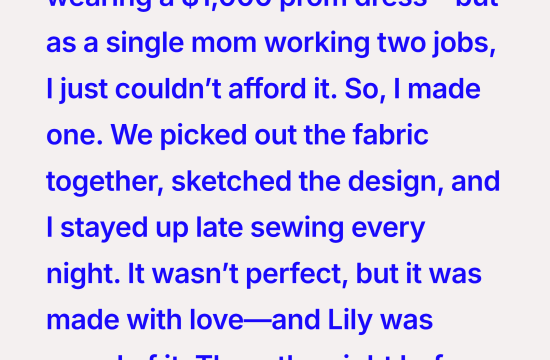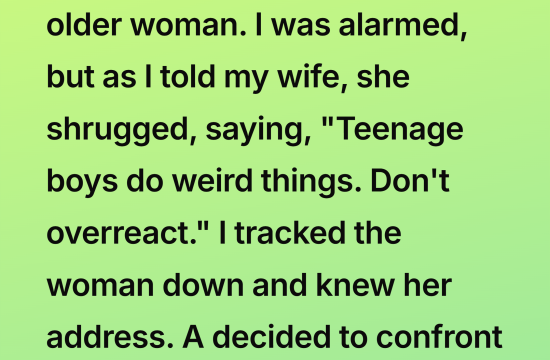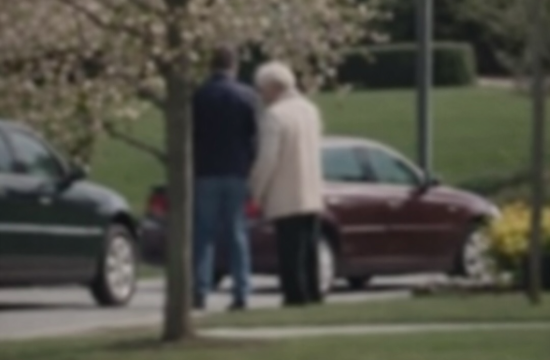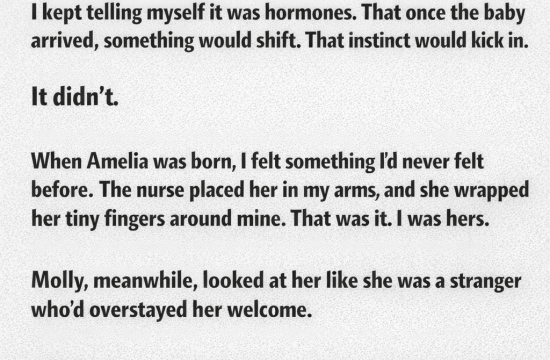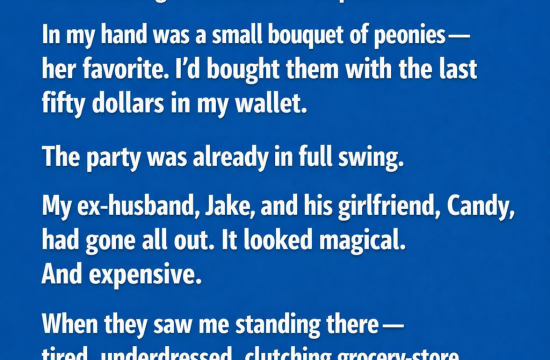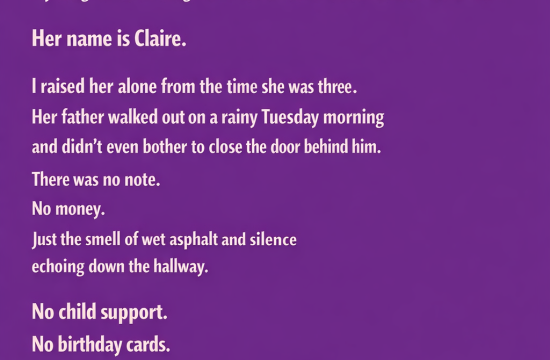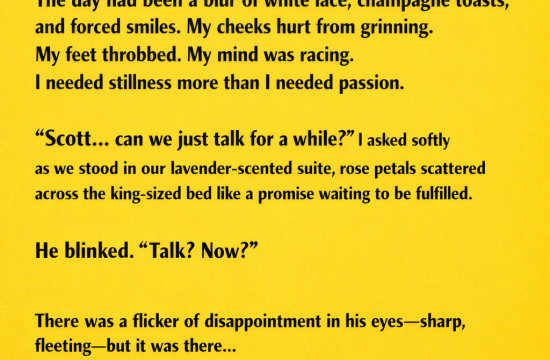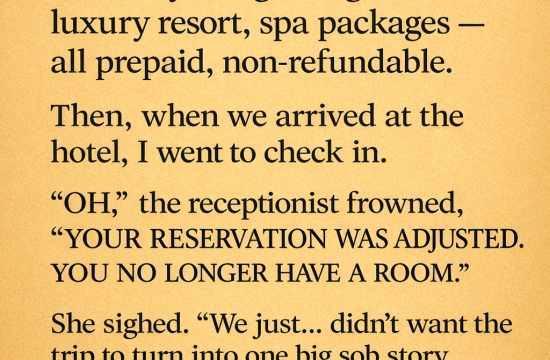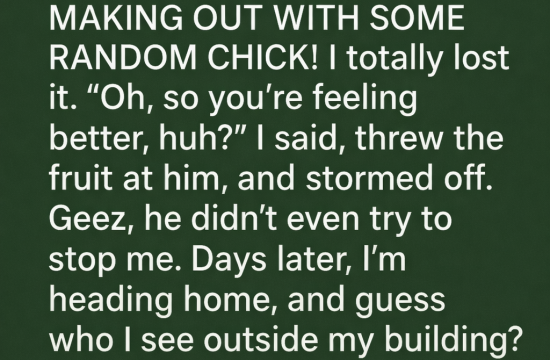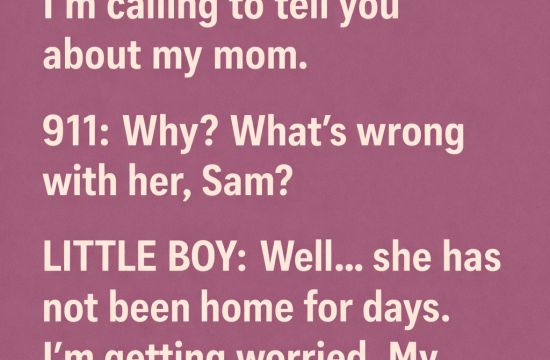My packages kept vanishing after a young woman moved in across the street. One night, I caught her on camera stealing a box at 1 a.m. Instead of calling the cops, I decided to teach her a lesson. The next night, I left a fake package outside—with something inside that would make sure she’d never forget what she did.
I filled the box with small, noisy alarms and one of those glitter bombs used in prank videos. The second the box was lifted, alarms shrieked and glitter exploded in a rainbow storm. From my upstairs window, I watched as the young woman, wearing a faded green hoodie, grabbed the bait. The moment she stepped off my porch, the chaos began.
She screamed and sprinted across the street, alarms blaring, glitter sticking to her like guilt in technicolor. I’ll admit—I laughed until I cried. But then I saw something in her expression that wiped the smile from my face. She didn’t just look startled. She looked terrified, like someone who’d never imagined getting caught. And that’s when I realized: this wasn’t just some petty thief.
The next morning, I saw her sitting on her porch, hoodie gone, head in her hands. Up close, she looked younger than I expected—barely in her twenties. I grabbed my phone with the package footage and crossed the street. But when I saw her face, I stopped. It wasn’t the face of a hardened criminal. It was someone drowning.
I introduced myself as Orson. She told me her name was Nella. Her voice shook like she hadn’t slept in days. I asked her why she stole the package. After a long pause, she told me the truth.
She’d fled an abusive boyfriend from two towns over. She had no job, no money, and nowhere to stay. The shelter was full. She’d been squatting in an empty house she claimed belonged to an aunt. She stole hoping to find food or something to sell for bus fare.
I felt a strange pang of guilt. I hadn’t meant to ruin her life—I just wanted my deliveries to stop disappearing.
I invited her in for coffee. Her eyes welled up as she stepped inside, taking in the cinnamon-scented warmth. She hadn’t eaten a proper meal in three days. I heated some leftover pasta. She devoured it so fast I nearly offered seconds before she finished the first.
As we talked, she opened up. Her mom had passed two years ago. Every time she tried to start over, life found a new way to knock her down. Every friend she leaned on let her fall.
The more I listened, the more I wondered if maybe she hadn’t landed on my porch by accident. Still, I couldn’t let her steal. So, I offered her a deal: help with yard work and cleaning, and I’d pay her cash each week. Her eyes lit up like I’d offered her the moon.
That first day was awkward. She was nervous, and I questioned myself. But little by little, her confidence grew. She learned to prune rose bushes without bleeding. She organized my garage better than I ever had.
We even shared laughs hauling trash. Her smile started lasting longer. But not everyone approved.
Mrs. Claiborne, my gossipy neighbor two doors down, started spreading rumors. People whispered. Some crossed the street to avoid us. Nella noticed. One night, she said she planned to leave so I wouldn’t be judged for helping her.
I begged her to stay. The next morning, I went door to door telling the real story. Some slammed their doors. Others listened. A few even dropped off food and clothes for her.
That night, I called an old friend who owned a bakery. I asked if she’d give Nella a shot. After a long pause, she agreed to an interview.
Nella prepared like her life depended on it. She borrowed a blouse from my late wife’s closet—it fit perfectly. When she returned from the interview, she was glowing. She got the job.
Everything changed from that day. She worked hard, saved money, and eventually rented a small studio above the bakery. She still visited on weekends to help with the garden. We’d sip sweet tea on the porch, watching the sun fade into evening.
Word spread. People saw how she turned her life around. Mrs. Claiborne even showed up with a blueberry pie one day and a quiet apology.
Then something unexpected happened. My friend’s son, Alaric, who helped manage the bakery, began spending time with Nella. They laughed like people who’d earned happiness. One evening, Alaric knocked on my door, palms sweaty, and asked if he could take her to dinner. I gave my blessing.
They started dating, and the bond between them grew deep and steady. I watched from afar, heart full. I’d never had kids, but somehow, I felt like a proud father.
By spring, Nella invited me to a dinner she’d made from scratch—three courses of perfection. Her eyes sparkled as she served, and I couldn’t stop thinking about the scared young woman once frozen in a cloud of glitter.
In truth, we had saved each other. I gave her a second chance. She gave me purpose after the long silence of losing my wife.
Then came the wedding. They planned a small ceremony in the bakery courtyard. She asked me to walk her down the aisle. I cried the moment she asked.
On the big day, the sky was an endless blue. The same neighbors who once whispered behind curtains now clapped and cheered. Mrs. Claiborne sat in the front row, wiping tears.
Afterward, Nella pulled me aside and pressed a box into my hand. Inside was a silver keychain shaped like a tiny house, engraved with: “You gave me a home when I had none.”
It’s the most meaningful gift I’ve ever received.
Looking back, I realize how one moment of frustration led to something beautiful. If I’d chosen punishment instead of compassion, I would’ve destroyed her last hope—and missed the most rewarding friendship of my life.
So here’s what I learned: never judge someone by their worst mistake. You never know the whole story. But kindness? Kindness can change everything.
If you’ve ever been in a moment where you had to choose between judgment and grace… I hope you choose grace.


